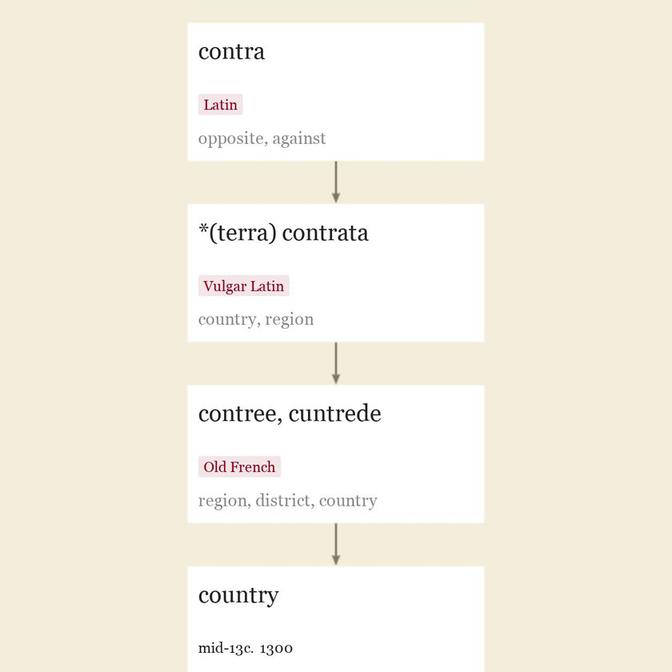in-country n.
"
Entries linking to in-country
a Middle English merger of Old English in (prep.) "
Sense distinction between in and on is from later Middle English, and nuances in use of in and at still distinguish British and American English (in school/at school). Sometimes in Middle English shortened to i.
The noun sense of "

mid-13c., "
Also from c. 1300 as "
INTERVIEWER [Steve Rossi]: "Would you say you're the best fighter in the country?
PUNCH-DRUNK BOXER [Marty Allen]: "Yeah, but in the city they murder me."
As an adjective from late 14c., "
Country air "
updated on October 10, 2017